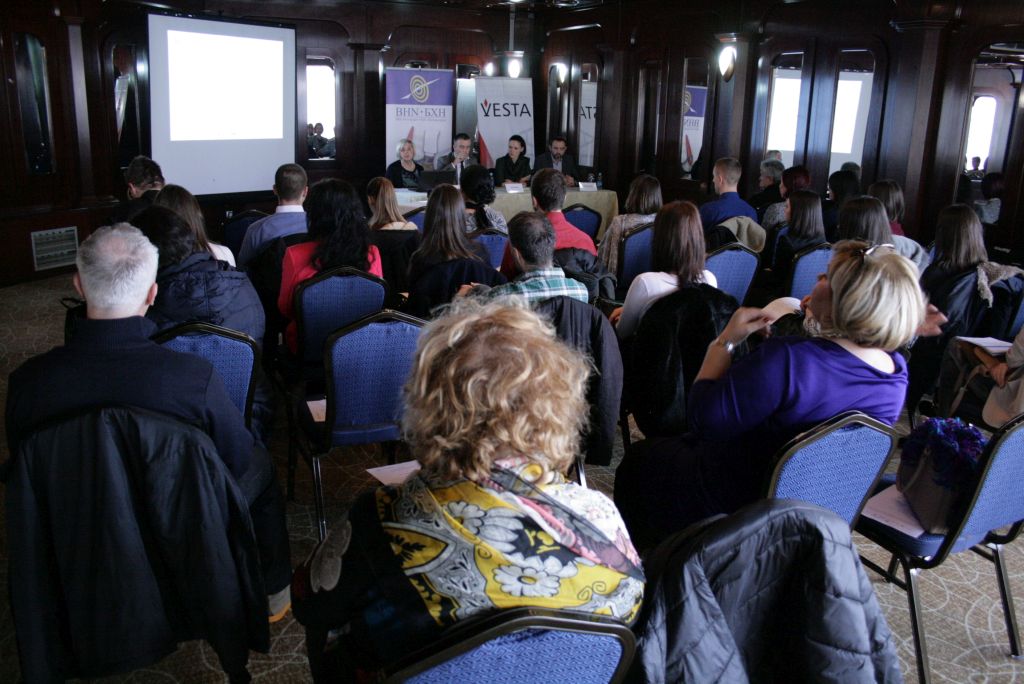
BANJA LUKA, 15.12.2017 .- Bosnia and Herzegovina is still at the bottom of the list of South East Europe countries by measuring the Media Clientelism Index for 2017. The index for Bosnia and Herzegovina is -0.67.
The project, goals and research were presented by Borka Rudić, General Secretary of BH Journalists Association, and the results were commented by a senior assistant at FPN Banjaluka Bojana Vukojević. President of the Journalists Club of BHJA, Siniša Vukelic and member of the Committee for European Integration and Regional Cooperation NSRS Adam Šukalo spoke about the problem of clientelism and corruption in media in BiH.
“The bad thing about the BiH media scene is that there are not many non-profit media, because the way of funding such media outlets can contribute to the reduction of clientelism,” Vukojević said, adding that the media outraged the corporate character of the harm to media professionalism and principles that should be a guide to journalistic profession. “Political parties will always try to use the media and for this reason, we need to have transparent ownership data and at the same time media literate the citizens so they can interpret this information,” Vukojević emphasized.
Complete transparency of media ownership is highlighted as the first priority to address all future media planning policies. Among other research recommendations, the need to change political culture and practice in which the winner of the election gets public media as part of “election booty”, as well as the need for free access to comprehensive media ownership, financial and material media coverage, subsidies, and existing and the hidden interests of those involved in decision-making on media issues, in real time for all interested citizens.
The results of the Media ClientelismIndex were presented simultaneously in all six countries covered by this survey – in Croatia, Bosnia and Herzegovina, Montenegro, FYR Macedonia, Serbia, and Romania.
Media Clientelism Index measures based on empirical data the political influence on the media, the existing state of the legislative and institutional framework of the media, and the key econometric measurements of the reality in which media and journalists work in countries of South East Europe. The index covers all key issues that deal with the European Commission media freedom guidelines and other existing Freedom House, Reporters Without Borders, but in a slightly different way.
In addition to measuring the reality of the media in Southeast Europe, the Index provides a detailed insight into all aspects of media functioning of decision-makers as well as those who want to participate in public debates on media policies.
The Measure of the Index was conducted in six countries of South East Europe within the project MEDIA CIRCLE. The project leader is the Partnership for Social Development from Croatia, and a consortium of 8 organizations are the Expert Forum from Romania; BH journalists Association and VESTA from Bosnia and Herzegovina; Institute of Public Policy of Montenegro; Public from Macedonia; Independent Society of Journalists of Vojvodina and Serbian Law Society for Human Rights. The project is funded from the Instrument for Pre-Accession Assistance (IPA) Civil Society Facility (CSF) and co-financed by the Office for Governmental Organizations of the Republic of Croatia.